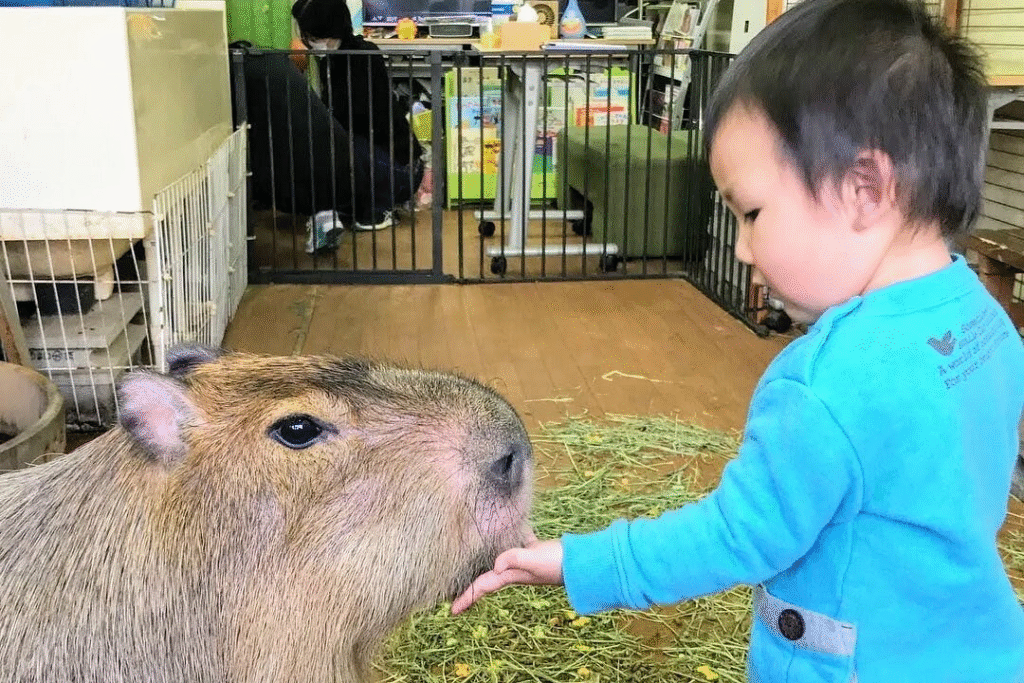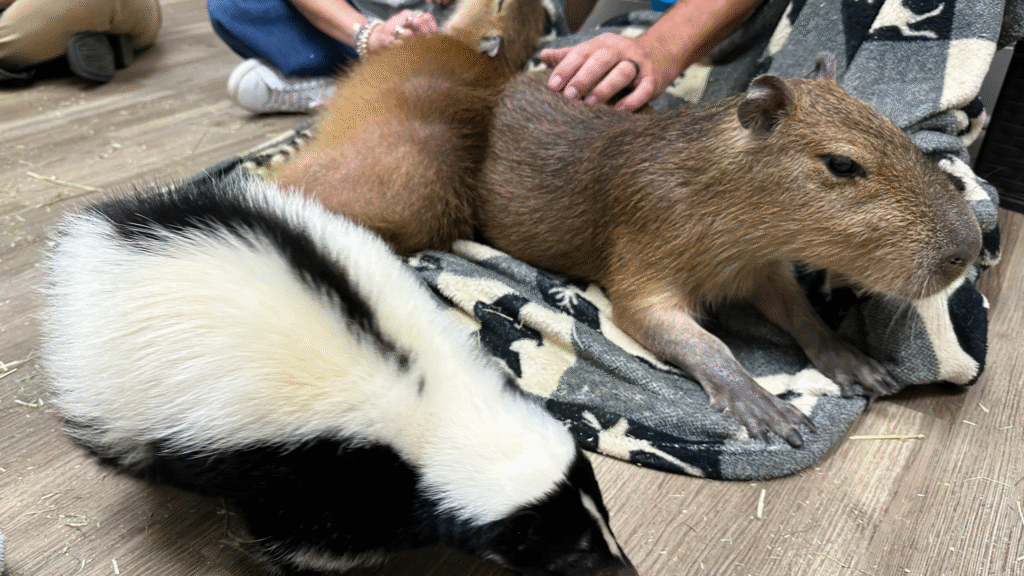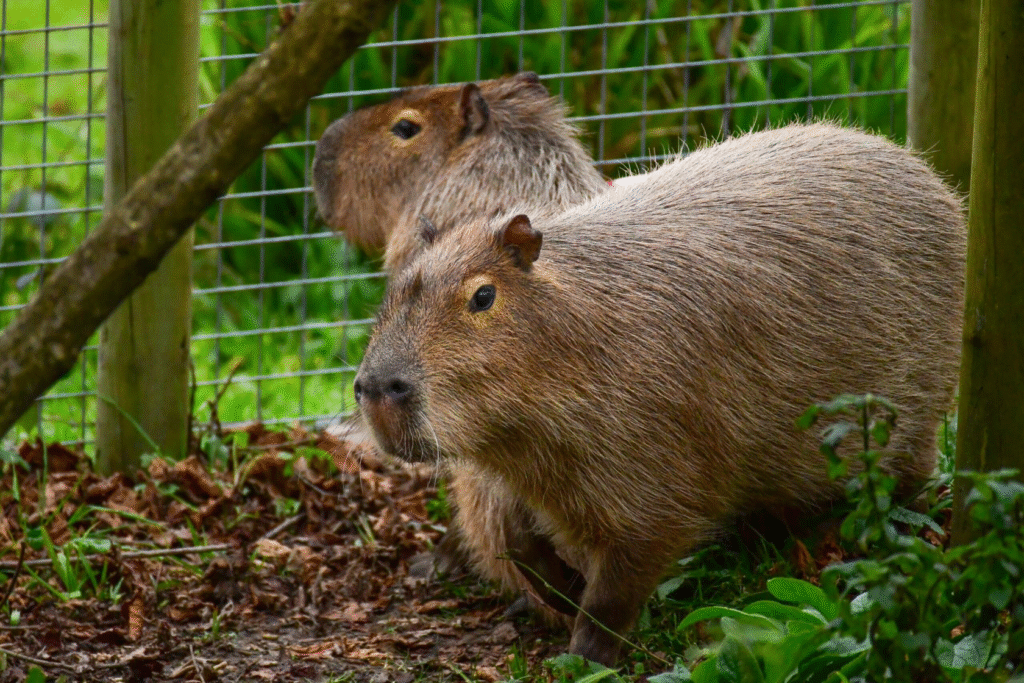Can you own a capybara in florida?
If you want a capybara in florida as a pet so first know all the things you need to adopt a capybara in florida. The bright sun, nice climate, and open spaces in Florida may seem like great reasons to adopt a capybara. The capybra is the largest rodent in the world, and while it is semi-aquatic, it still has specific needs. Before thinking about adopting one, it is important to know what Florida requires legally and what is involved when caring for a capybara. This article will cover the legalities, care, and more for someone thinking about adopting a capybara in Florida. i will guide you all things that you need to adopt a capybara as a pet in florida
Legal Status of Owning a Capybara in Florida

In Florida, capybaras are considered exotic animals. The Florida Fish and Wildlife Conservation Commission oversees capybara ownership. According to state statutes, if a resident wants to own a capybara as a pet, the resident would need to apply for and receive a Class III Wildlife License from the FWC.
A Class III Wildlife License covers non-domesticated but non-dangerous animals. Capybaras are not considered aggressive animals, but capybaras are classified as Class III wildlife because they are an exotic animal, they require exotic animal husbandry, and they have specific animal husbandry requirements.
A Florida resident must:
- show sufficient knowledge about capybara behavior, feeding, and habitat
- provide the animal a safe, secure, and humane habitat
- minimize risk that the animal would escape or pose a threat to any of our native wildlife
The above legal requirements were put in place to ensure that informed residents actually get approval for capybaras as pets. The court protects the resident, the animal, and all of the valuable Florida habitat.
Considerations for Caring for Capybaras in Florida

Capybaras are not low-maintenance pets. If you’re considering welcoming one into your home, it’s important to be fully prepared for the level of care and commitment they require.
Space and Environment
Capybaras like plenty of outdoor space. Being semi-aquatic, they also need water for swimming and to cool off. A good enclosure should include:
- A minimum of at least 50 square feet of land area
- A pool or pond at least 25 square feet
- An additional 25 square feet for each additional capybara
Enclosures should mimic their natural habitat being as they naturally inhabit a grassy area with shaded areas, mud pits, and vegetation.
Diet
Capybaras are strictly herbivorous and, therefore, require a high-fiber diet. Capybaras require limitations on animal protein such as cheese and puppy chow. They should be offered a diet of fresh grass, Timothy hay, leafy greens, vegetables, and, as an occasional treat, fruits. Proper nutrition is critical to the capybara’s digestion and dental health.
Socialization
Capybaras are very social animals! Capybaras in the wild form herds, so keeping a capybara on its own will likely lead to stress and behavioral problems. It is strongly suggested that at least two capybaras are kept together so they might form a proper bond and feel safe.
Veterinary Care
Not all veterinarians have exotic animal experience, so you will need to vet the vet and find one who has experience with capybaras. Routine health check-ups and wellness are important for a capybara, as are vaccinations and preventative care!
Training and Enrichment
Capybaras are curious and intelligent. A bored capybara can be destructive and mischievous. Provide toys, treats, and play time, and tunnels or places to hide. Provide basic training plans to keep the capybaras engaged for 20-30 minutes per day.
Potential Legal Issues
While it is legal to own a capybara in Florida with the required permits, you should be aware you may face additional legal challenges. It is very important to keep in mind that while the state allows ownership with the proper FWC permits, your local county or city may have more restrictive ordinances or rules.
As an example, some towns in Florida may ban exotic pets altogether or set restrictions like housing, noise or outdoor enclosures. Check with your local government/zoning office before you “buy the pig”.
The Places in Florida Where You Can Adopt a Capybara

Once you’re ready to adopt, look for a reputable source, that has the animals’ best interests at heart. Capybaras are not very common in pet stores, so there are a few ways to adopt a Capybara:
Exotic Animal Rescues and Sanctuaries
There are some rescues in Florida that deal specifically with rehoming exotic pets. They may have the ability to locate you a Capybara, but they may have other exotic animals available as well. They provide proper health assessments, behavioral assessments, and any following support. When you adopt from a rescue, you are reducing the chances of a capybara ending up back in a rescue.
Private Breeders
There are licensed breeders in Florida that raise and subsequently sell capybaras. When looking for breeders, make sure they are licensed, ethical, and provide proper habitats for their animals. Find out about the animal’s health (all documentation available) and socialized (be a part of a bigger family). Visited in person, take in the process advised, so you aren’t adopting impulsively.
Adopt from Online Adoption Sources
Some capybaras might change ownership online for selling purposes, usually from exotic pet forums or classified sellers. If you decide to go via those sources, you will want to be diligent to credible sites and listings. Following the same advice before, you’ll want to vet the listing to make sure they are not selling a misrepresented animal. You will also want to check there licensing information. Before the exchange is officially done, make sure your paperwork and any permits are accounted for!
Is Florida a Suitable Environment for Capybaras?
Yes, Florida’s environment is actually very compatible with capybaras as they are native to South America where hot, humid, and tropical climates are commonplace. Florida has similar conditions (temperature and humidity).
However, your capybara will also need:
- Access to cool shaded areas
- A clean swimming area
- Shelter from Florida’s intense rain or cold snap
Providing a good combination of land and water, and consistent supervision and care will ensure your capybara will flourish in the state of Florida!
Final Thoughts
Welcoming a capybara into your life is not a decision that should be made lightly. These incredible creatures can be loving and interesting companions, but only for those individuals willing to cater to their complex needs.
If you follow through with the legal issues required, provide the environmental conditions necessary, and commit to the lifelong responsibility, ownership of a capybara in Florida could be rewarding. Just remember, they will not act like your average pets, and they depend on responsible pet parents.
Celebrate Your Love for Capybaras in Style
If you’re a capybara lover, why not be proud? Custom enamel pins featuring capybaras are a stylish and cool way to show off that love. Pin them on jackets, pin them on backpacks, pin them on hats! It’s a very subtle but very true representation of your bond with your exotic friend.
These pins are not just cute collectibles. it’s a sign of your respect for nature and the endorsement of one of the coolest and most curious creatures in the world.
Are you ready to adopt a capybara in Florida? Be sure that you are licensed, educated, and ethically sourced! Whether you own a capybara or just want to admire them from a distance, these animals will always deserve your curiosity, respect, and kindness.







